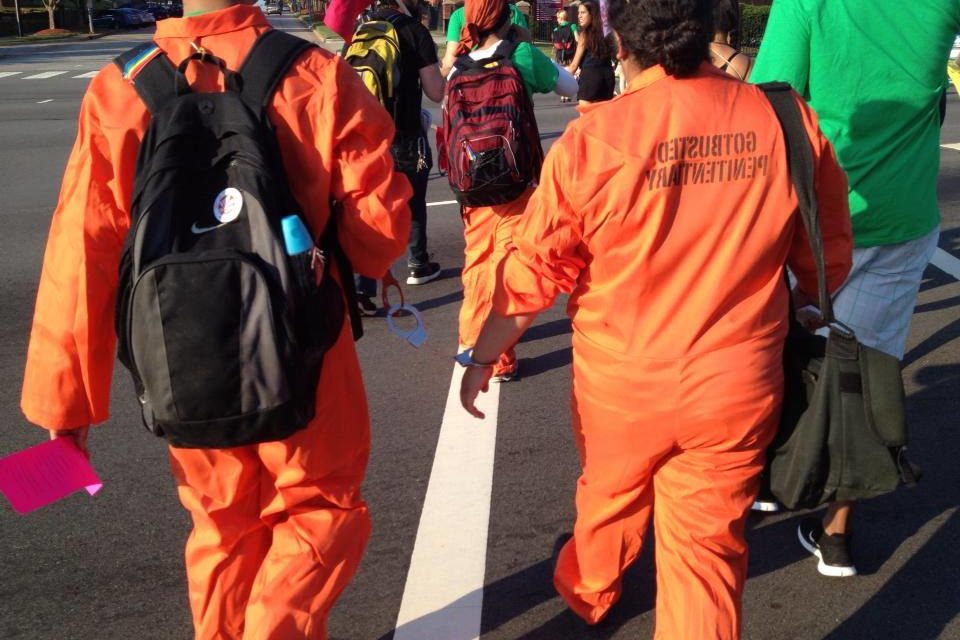Data shows that WCPSS disciplines Black students the harshest
Chris Hart-Williams | Staff Writer
Friday, the U.S. Department of Education’s Office for Civil Rights released a report highlighting a suspension rate disparity between black and white K-12 students. According to the report, among U.S. public schools black students are suspended three times more often than white students, including preschool.
Of all students who are suspended in a Wake County Public School System school more than half are black.
Jason Langberg, Supervising Attorney at Advocates for Children’s Services a statewide project of Legal Aid of North Carolina says this is a disparity that’s been known in the WCPSS for years.
According to an analysis completed by Langberg and his associates of WCPSS data during the 2008-2009 school year, black students were only 26.1 percent of the total student population, but of all out-of school suspensions, black student made up 62.3 percent of short-term suspensions, 67.5 percent of long-term suspensions and 73.4 percent of school-based delinquency complaints.
“We’re moving to look in our policies so that we can challenge that trend,” said WCPSS Board chair, Christine Kushner.
According to Bryan Perlmutter, a spokesman for NC HEAT, a student advocacy group for civil justice in public schools, the group wants the WCPSS school board to do more concerning the high suspension rate of students of color.
On March 18, Students associated with NC HEAT wore prison jumpsuits to the Wake school board meeting to protest what they say is a “school-to-prison pipeline” district.
A phrase used nationally to describe instances where schools discipline minority students at higher rates than white students and often hand them over to the criminal justice system, Landberg says the Wake County school-to-prison pipeline is “huge.”
“It is a system of laws, policies and practices that are pushing students out of school and on a pathway toward the juvenile criminal justice system,” said Landberg.
At the March 18 meeting, NC HEAT told the story of Selina Garcia, a senior enrolled at Southeast Raleigh High School, who was arrested after an altercation with another student. At the time of the protest, Garcia had been incarcerated for more than 12 days.
Kushner said she recognizes that there is a disparity in the types of students that are suspended and understands the concern. “We realize we need to continue our focus on whatever we see in disparity and student performance and student discipline outcomes,” said Kushner.
“They’re not doing anything to target the disparities in suspensions,” said Langberg. He also noted that suspension pushes students out of the mainstream learning environment and increases their odds of academic failure, psychological issues, drug use and gang involvement.
In a written statement to the Nubian Message, Jim Martin, a Wake School Board Member and a professor in chemistry described the actions of NC HEAT as “counterproductive.” According to Martin, NC HEAT filed a legal complaint against the board. He says, “Solutions will only be found when working together.”
Perlmutter said NC HEAT wants the school board to do two things to address what they call a problem, one of which is to institute a temporary pause on out of school suspensions which he said a harmful because they cause students to fall behind on their course work.
As a result of Wake school’s “zero- tolerance” policy certain offenses require students to receive either out of school suspension and sometimes jail.
Kushner said the board has made recent changes to WCPSS discipline policies such as requiring a certain amount of offenses before out of school suspension becomes an option. Prior to these changes she said it was easier for students to be suspended for offenses such as cell phone use, tardiness and defiance.
Still, Langberg says these changes aren’t appropriate solutions.
“WCPSS’s policies and practices regarding suspension are just one of a number of factors that contribute to the “school-to-prison-pipeline,” said Langberg. “The list could go on and on and on.”
Another problem NC HEAT sees in WCPSS are the practices of its Schools Resource Officers, commonly referred to as SROs. Perlmutter said too often they create a prison culture in schools because they bring taisers, dogs and handcuffs into schools.
NC HEAT wants the WCPSS school board to change and revisit its agreement with police and have SROs be required to have training to work with students.
Kushner said SROs already have training to work with students but that the board is working to ensure that all are certified with the North Carolina Justice Academy.




